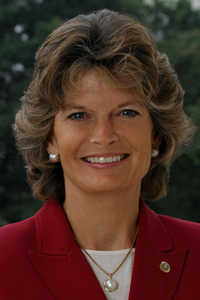In late April, the U.S. Senate overwhelmingly approved a major energy bill for the first time in almost a decade. The Energy Policy Modernization Act is a broad rewrite of our increasingly outdated policies in this area. As you might expect, it reflects extensive input from Alaskans, and contains dozens of provisions that will provide lasting benefits for our state.
The first thing to say about this bill is: it’s about time. The last time the Senate passed a significant energy bill was in 2007. Since then, new technologies have emerged as seen by the fracking revolution which has brought dramatic changes to our energy landscape. But at the same time, the relentless federal regulatory state has overtaken Congressional policy and direction. And many of our most pressing challenges, from aging infrastructure to high costs in rural regions, have gone largely unaddressed.
Because our policies have not changed, we are in a situation where both opportunities and needs are being ignored. That is often the case right here in Alaska — where many of our residents still struggle to obtain affordable energy even while the federal government actively seeks to deny our most promising options for resource production.
My response, when I became Chairman of the Senate Energy and Natural Resources Committee last year, was to draft legislation that would bring our federal energy policies up to speed. I committed to a bipartisan approach that followed the almost forgotten process of regular order. And I kept Alaska front and center, from start to finish.
The result? A broad, bipartisan bill that will increase production in Alaska, help our residents pay less for energy, and ensure continued access to our public lands.
For starters, my bill boosts mineral development — without weakening environmental protections — by prioritizing resource assessments and tackling permitting reform.
It streamlines the regulatory process for hydropower, which can provide renewable electricity to dozens more communities across our state.
It provides routing flexibility for the Alaska gasline, to eliminate a federal hurdle that could have stood in the way of that must-build project.
And it requires timely decisions for LNG export applications, to prevent unnecessary bureaucratic delays, which will help Alaska market our stranded gas.
My energy bill is not only about policy reform. It also prioritizes innovation and efficiency, for everything from microgrids to commercial buildings.
It reauthorizes programs that provide vital funding to Alaska, including the Weatherization Assistance Program, the State Energy Program, and the Department of Energy’s Office of Indian Energy.
It promotes the development of our methane hydrate, marine hydrokinetic, and geothermal resources, all of which can be significant contributors to our supply.
And it allows states like Alaska to apply for federal energy loan guarantees, which will help us deploy new, lower-cost systems in communities across the state.
Equally noteworthy is the approach we took in crafting this bill. It rejects the model of government-knows-best in favor of policies that will empower individuals and communities to take control of their energy futures. There are no top-down federal mandates within it. We similarly avoided tax increases and anything that would add to the federal deficit.
It is also more than just an energy bill. The night before it passed the Senate, I offered my Sportsmen’s Act as part of a larger amendment related to lands and water policy. The Sportsmen’s Act will help ensure access to public lands for hunting, fishing, and other outdoor activities that are important to Alaskans – and I’m pleased to report that the Senate unanimously approved it.
Lands administered by the Bureau of Land Management and Forest Service will now be “open unless closed.” We clamp down on their ability to shut down access to our public spaces. And we require every agency to expand and enhance sportsmen’s opportunities in federal areas.
The Sportsmen’s Act will help ensure that places like Tiedeman Slough and Martin Lake Cabin remain open. And they collectively represent a big step forward to allowing long-held traditions to be passed down from generation to generation — without the federal government getting in the way.
But it’s not just about keeping our public lands “open unless closed,” the sportsmen’s provisions in the energy bill included the reauthorization the North American Wetlands Conservation Act (NAWCA) which is critical to hunters who go out for waterfowl, migratory birds, and other wildlife.
The Energy Policy Modernization Act was created by listening to Alaskans. It was written with the advice and expertise of a wide range of individuals across our state. It will help us produce more energy, it will help us save energy, it will reduce local energy costs, and it will keep our lands open. In the process it will allow us to create new jobs, generate new revenues, and continue our strong contributions to the nation’s energy supply.
This is a bill for Alaska — and a potential federal law that, for once, every Alaskan should welcome.
Sen. Lisa Murkowski chairs the Senate Energy and Natural Resources Committee.

